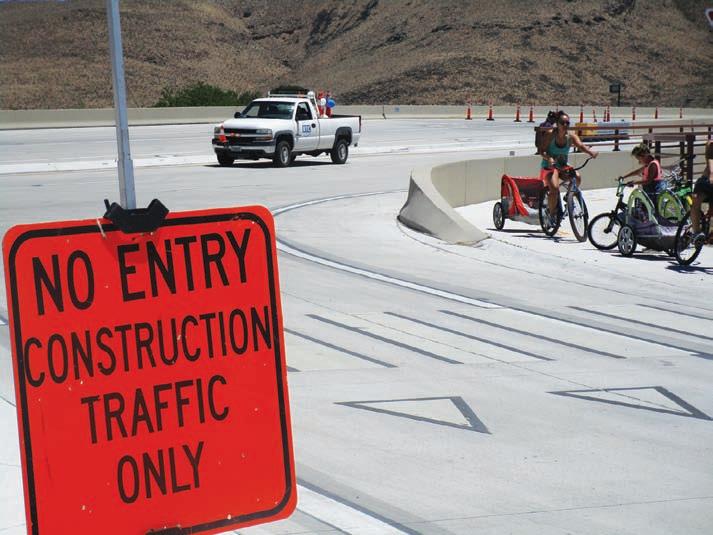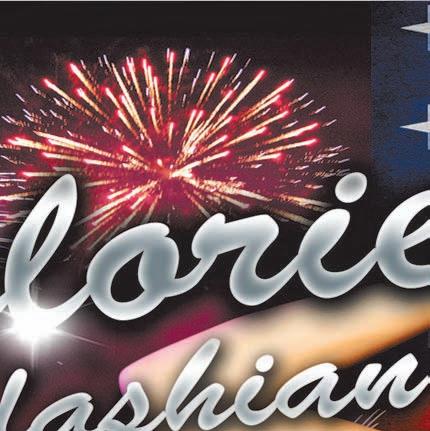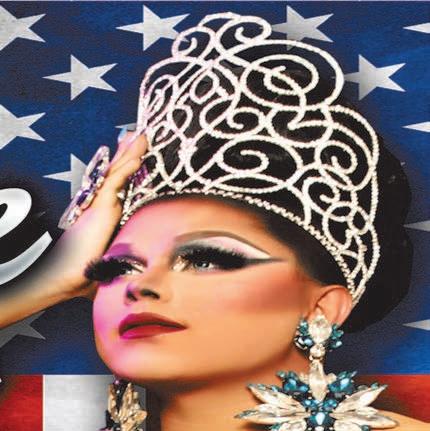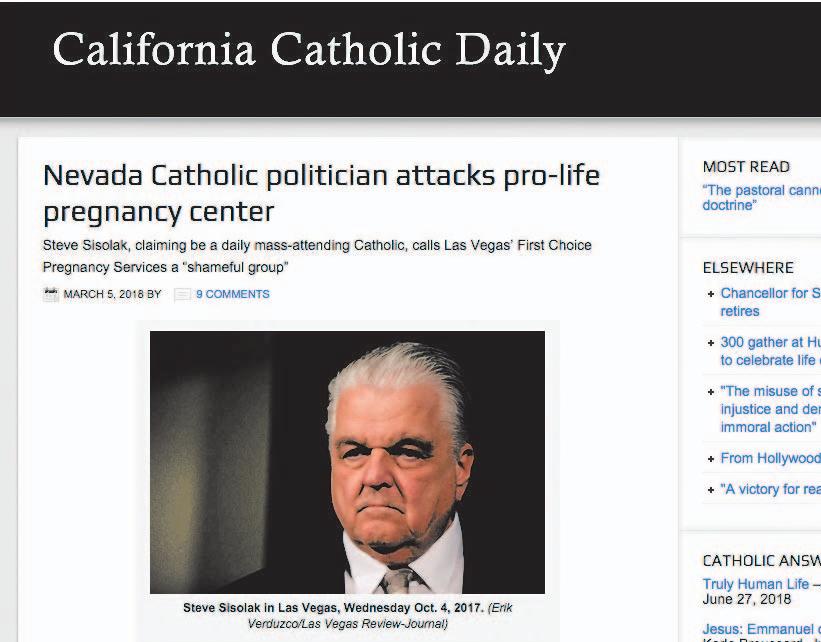
9 minute read
NEWS
from July 5, 2018
Choose one
During his trip to Las Vegas on June 23, Donald Trump said, “We’re going to have the wall. We’re gonna have the wall. We’ve already started it. ... We’ve already started it. You know, we started it in San Diego. ... Now we’re going to have the wall. And we started it. We have $1.6 billion. We’ve started it. We’re fixing it. And we’re building new. And we’re starting it. … We’re getting the wall built.”
Advertisement
In fact, FactCheck.com reported that what is in San Diego is an array of prototypes for the wall, not the wall itself. The website quotes Republican Rep. Jim Jordan: “The one thing we don’t fund is the one issue we all campaigned on—a border security wall—and that is not in the legislation.”
That raises the question of whether Trump (1) doesn’t know what the San Diego array is, though he visited it, and thus is poorly informed, or (2) he knew what he was saying was incorrect, and he said it anyway.
he’s gone
University of Nevada, Reno art professor Howard Rosenberg retired on June 30 after 51 years at UNR.
“I came out here planning to stay for a one-year contract and then go back east,” he once told a Fallon audience. “It’s 50 years later and I’m still here. My mother came out here for a visit and stayed for 18 years. My sister came out to get rid of a husband and found three more. This is a very good place.”
During those years, Rosenberg was also a movie critic for KTVN in Reno and KCRA in Sacramento and service on the Nevada Board of Regents for 12 years and the Washoe County School Board for four.
Legendary CoLumn ends
This newspaper is called an alt-weekly, meaning an alternative weekly—usually alternative to a daily or long established newspaper. Alt-weeklies around the nation have a lot of accomplishments to their credit. In Chicago, the Reader is the proud home of Cecil Adams and the Straight Dope, a column that answers readers’ weird questions (“If everyone in China jumped off chairs at once, would the earth be thrown out of its orbit?” “Is it true about Catherine the Great and the horse?”). It has appeared in alt-weeklies around the nation.
Cecil has now hung up his column with a final piece on June 27 (“Do brain supplements do anything?”). His first column—February 2, 1973—dealt in part with the 1968 Democratic National Convention and also with Aaron Russo, who later became a short-lived Donald Trumpish political figure in Nevada. The column archive will remain online, and there are several books of Straight Dope columns in print.
Nevada appeared regularly either in the column or Straight Dope reader message boards, with discussions of astronaut training in Nevada, why there is a naval research lab in this desert state, who or what is Chevy Chase (a couple of Nevada U.S. senators founded an all-white Maryland town with that name), mid-20th century permeation of the world’s iron by radiation from Nevada atom bomb tests, the record for North American mallard ducks colliding with airliners (21,000 feet over Elko), and a variety of prostitution questions. —Dennis Myers
One Catholic website took aim at Nevada candidate for governor Steve Sisolak.
Mandatory speech
Is it free if it’s required?
a few years ago a young woman in Carson City for a session of the Nevada Legislature—not a legislator—thought she might have been pregnant. The session ran for about five months, and she did not want to fly back to Las Vegas for a doctor’s appointment. She looked in a phone book for a clinic and found something called a crisis pregnancy center (CPC).
After going for a pregnancy test and having it come out negative, she told a friend that while she was there it was clear that “it was an anti-abortion place.” She worked out the rest of the legislative session and returned to Las Vegas.
The clinic visit gave her peace of mind. She was just as happy not to experience what she might have if the test had come out positive. In a major free speech ruling, the U.S. Supreme Court on June 26 overturned a California law requiring crisis pregnancy clinics—created as an alternative to abortion—to post signs advertising abortion services, supposedly to aid low income patients. The court found “California could inform low-income women about its services without burdening a speaker with unwanted speech.”
The signs read, “California has public programs that provide immediate free or low-cost access to comprehensive family planning services (including all FDA-approved methods of contraception), pre-natal care, and abortion for eligible women. To determine whether you qualify, contact the county social services at [phone number inserted].”
The ruling has become an issue between the candidates for Nevadas’ governorship. Republican Adam Laxalt signed onto a legal brief that supported overturning the California law. After the ruling was released, Laxalt visited a crisis pregnancy center in Clark County.
After Laxalt visited the CPC, Democrat Steve Sisolak tweeted, “Adam Laxalt’s anti-choice views are beyond the pale,” Sisolak wrote. “If his outspoken opposition to [Planned Parenthood] isn’t enough, his embrace of this shameful group is enough to demonstrate where he stands. As governor, I would protect access to women’s health care and a woman’s right to choose.”
Sisolak’s stance enabled the Las Vegas Review Journal to use the headline, “Sisolak, Democrats attack group for helping pregnant women.”
Justice Clarence Thomas wrote in the majority opinion, “As California conceded at oral argument, a billboard for an unlicensed facility that says ‘Choose Life’ would have to surround that two-word statement with a 29-word statement from the government, in as many as 13 different languages. In this way, the unlicensed notice drowns out the facility’s own message.”
The California Legislature enacted the law requiring the signs in 2015 in a measure dubbed the Reproductive Freedom, Accountability, Comprehensive Care, and Transparency [FACT] Act. According to the Atlantic Monthly and other sources, legislators relied heavily on a report by the National Abortion Rights Action League (NARAL) in deciding to pass the law, which is a bit like asking a barber if you need a haircut. NARAL is a lobby group and its report on crisis pregnancy centers was full of emotionally loaded language—“CPCs are storefronts that use false and misleading advertising and the offer of free pregnancy tests or other services to lure women into their offices. Then their goal is to dissuade women from exercising their right to choose.”
There is no evidence that legislators investigated independently to confirm the claims in the 7,900-word report by the lobby organization. But even if it had, there were ways to remedy the alleged problem without breaching free speech. In addition, the lawmakers carefully limited where it would require the signs.
Thomas: “If California’s goal is to educate low-income women about the services it provides, then the licensed notice is wildly underinclusive. … California has nearly 1,000 community clinics—including federally designated community health centers, migrant health centers, rural health centers, and frontier health centers—that serv[e] more than 5.6 million patients … annually through over 17 million patient encounters. … But most of those clinics are excluded from the licensed notice requirement without explanation.”
The privileged status given to the NARAL report did not happen just in the California Legislature. The San Francisco city attorney has posted it on the office website, a forum that has not been awarded to any other lobbying organization.
Crisis pregnancy centers have been around since well before Roe vs. Wade, the ruling that made abortion legal and safe. As support for legal abortion grew in the 1960s, CPCs appeared first in Canada, then spread south. They tend not to be full-fledged clinics, providing mainly pregnancy tests and ultrasounds, and they may also provide non-medical
services, including adoption assistance, financial aid and parenting advice. As in the case of the Carson City clinic, most of them tend to make clear where they stand on abortion. But if they do not, it’s not an indictable offense.
One leading Reno attorney drew our attention to a section of the syllabus in the ruling: “And [the court] has stressed the danger of content-based regulations in the fields of medicine and public health, where information can save lives. Such dangers are also present in the context of professional speech, where contentbased regulation poses the same risk that the Government seeks not to advance a legitimate regulatory goal, but to suppress unpopular ideas or information. When the government polices the content of professional speech, it can fail to preserve an uninhibited marketplace of ideas in which truth will ultimately prevail.”
Compelled speech, an obscure free speech issue, can include health warnings on products, children saluting the flag in school and adults signing loyalty oaths to have jobs, license plate sayings, and school dress requirements. The California legislators treated the required signs as providing medical “informed consent.”
The court ruled, “But the licensed notice is neither an informed-consent requirement nor
any other regulation of professional conduct. It applies to all interactions between a covered facility and its clients, regardless of whether a medical procedure is ever sought, offered, or performed.” Paradoxically, abortion providers in more than half the states are required to carry “informed consent” brochures concocted by anti-abortion legislators who say they are providing needed medical information, though some of those states have never implemented the law by “California prescribing the language to be could inform lowincome women about its carried in the printed matter. Abortion supporters have opposed those examples of services without burdening compelled speech. a speaker with unwanted speech.” The vote in the case, National Institute of Family and Life Advocates Clarence Thomas U.S. Supreme Court Justice v. Becerra, was by the now-familiar 5 to 4— Alito, Gorsuch, Kennedy, Roberts and Thomas on one side; Breyer, Ginsburg, Kagan and Sotomayor on the other. There was a time when Democratic-appointees would have joined the five, but such justices now rarely show the kind of freedom of expression concerns that motivated justices like Hugo Black, William O. Douglas and William Brennan. Ω In this report, we have edited quotations from court rulings to make them readable by removing references to citations.
Growth connector finished
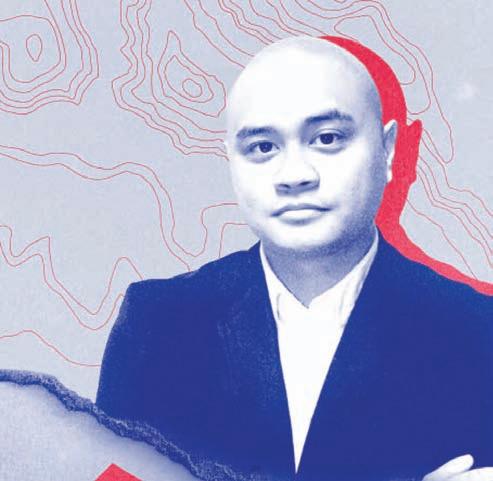


The long-dreaded Pyramid-Tahoe Link between east Sparks and south Reno has been completed. Here, transportation workers kept bikers off it until it was opened for walk-throughs and ride-throughs last weekend. When originally proposed, the freeway provoked grass roots organizing by opponents in the community, partly because they believed it would foster growth, and partly because the route crossed environmentally sensitive land. It was finally canceled, but transportation officials quietly changed its name to the Southeast Connector and built it, anyway, while critics of the project failed to pay attention.
